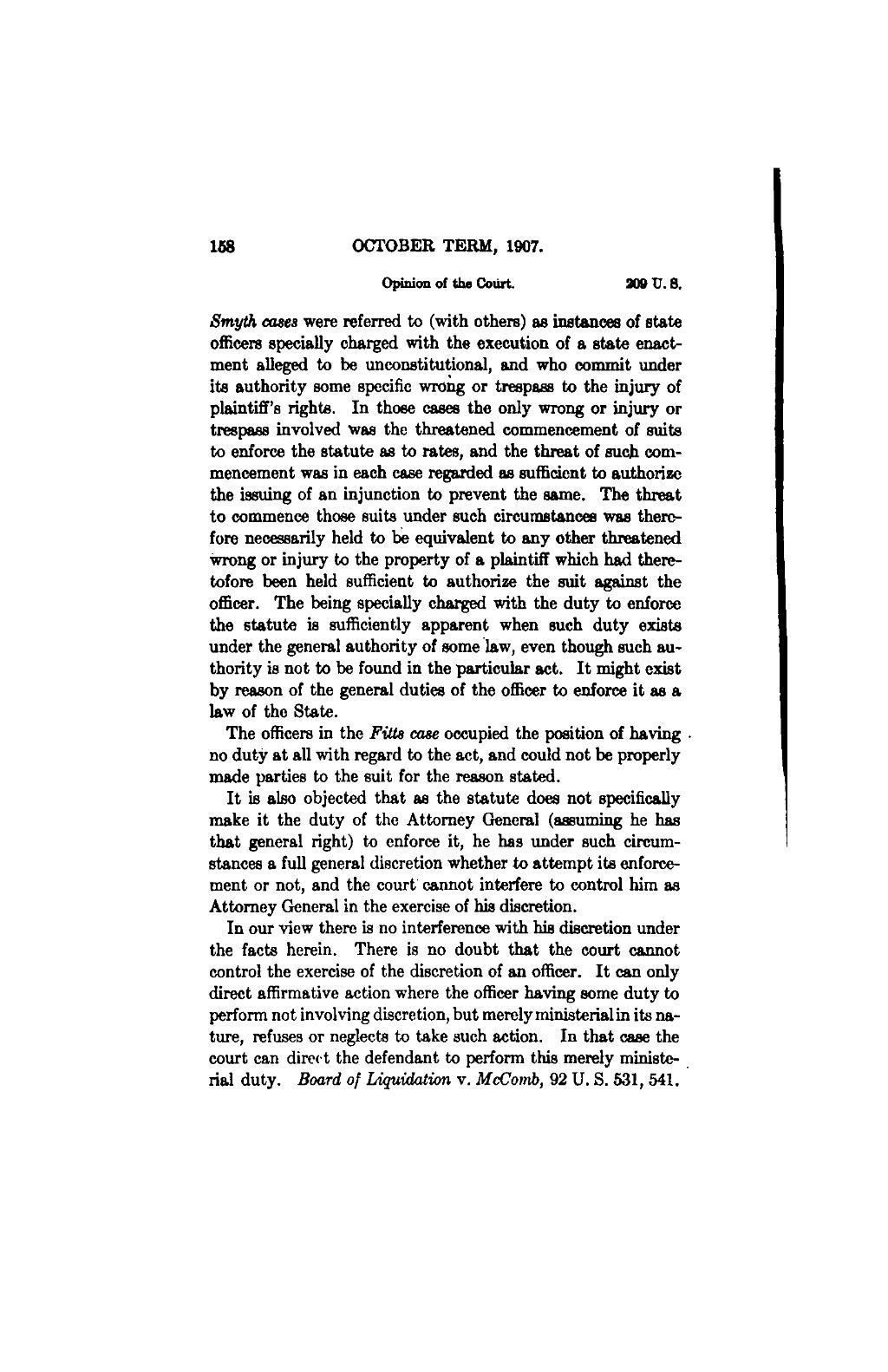OCTOBER TERM? 1907. $m? c?e? were referred to (with others) as instances of state officers specially charged with the execution of a state enset- ment alleged to be unconstitut?ional, and who commit under its authority some specific wrong or trespass to the injury of plaintiff's rights. In those cases the only wrong or injury or trespass involved was the threatened commencement of suits to enforce the statute as to rates, and the threat of such com- mencement was in each case regarded as sufficient to authorize the issuing of an injunction to prevent the same. The threat to commence those suits under such circumstances was there- fore necessarily held to b? equivalent to any other threatened wrong or injury to the property of a plaintiff which had there- tofore been held sufficient to authorize the suit a?ainst the officer. The being specially c? with the duty to enforce the statute is sufficiently apparent when such duty exists under the general authority of some 'law, even though such au~ thority is not to be found in the particular set. It might exist by reason of the general duties of the officer to enforce it as a law of the State. The officers in the F?tts caze occupied the position of having. no duty at all with regard to the act, and could not be properly made parties to the suit for the reason stated. It is also objected that as the statute does not specifically make it the duty of the Attorney General (assuming he has that general right) to enforce it, he has under such tireurn- stances a full general discretion whether to attempt its enforce- ment or not, and the court' cannot interfere to control him as Attorney General in the exercise of his discretion. In our view there is no interference with his discretion under the facts herein. There is no doubt that the court cannot control the exercise of the discretion of an officer. It can only direct affirmative action where the officer having some duty to perform not involving discretion, but merely ministerialin its na- ture, refuses or neglects to take such action. In that case the court can dire�.t the defendant to perform this merely ministe- rial duty. Board o? Liqu?clat?on v. McComb, 92 U.S. 531,541.
�
